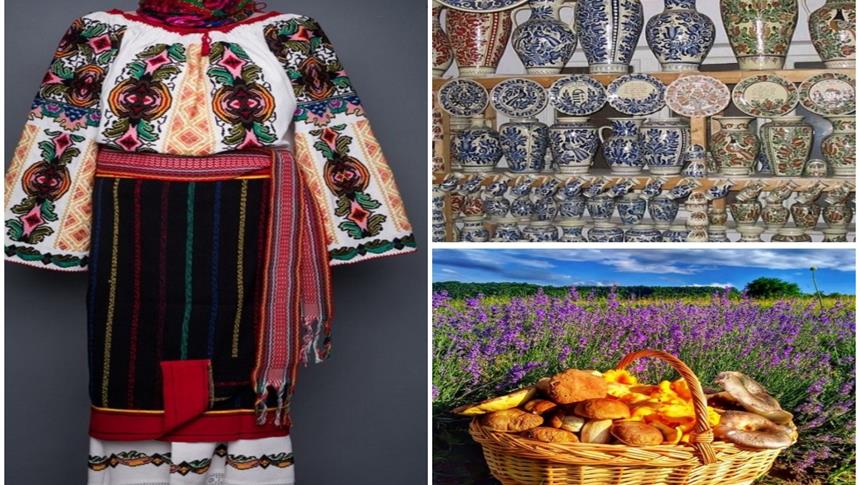The most authentic hearths of life for the Romanian nation can be found in Romanian rural settlements, dating back to distant times of history. They are the primary keepers of the ethnic specificity through the ages, which is marked by traditions and customs of great beauty and originality. Mother of traditions and values, the village is fundamentally connected to the civilization, culture, and spirituality of the people.
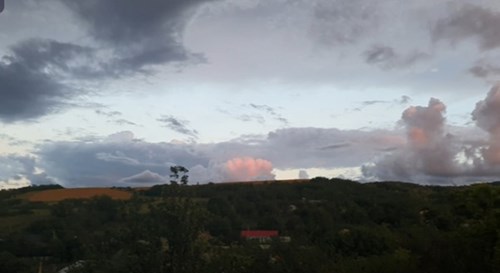
For comprehending Romanian millennial life, the historical-ethnographic category of the village is of utmost significance, and it has served as the state's foundation throughout history thanks to its structure and systems of thought.
The village has always been there, as a symbol of stability, where life could never end. Even when some villages where completely destroyed over the course of the history, they were reborn from their own ashes like the Phoenix bird, due to their people's vigour. The community has always stood tall in its ethics and spiritual being, rebuilding its hearths in a never-ending becoming and renewal, because there is the nation, the country, the holy faith, the Romanian field and all their loved ones.
As Lucian Blaga, a famous Romanian philosopher, poet, and novelist used to say: "I know that the eternity was born in the village". In his poem "The soul of the village", Blaga discussed the Romanian village landscape and its bond to the authentic countryman, where "every thought is smaller, and the heart throbs more slowly, as if it beats not in your breast, but deep down somewhere is the earth". (beyonddracula.com)
Romania has long been a borderland of Europe, right on the frontiers of great empires and its culture has been influenced by Romans, Dacians and Turks, although keeping his veritable origins and faiths. Nowadays, the traditional architecture and handcrafts, the music and costumes, the cuisine, and even the people's spirits are a clear proof of its authenticity. The Romanian village is the first guardian of this traditions and has survived the infiltration of what is frequently called "Western capitalism", keeping its identity "clean". The village is so different from one region to another but is so unifying in spirit.
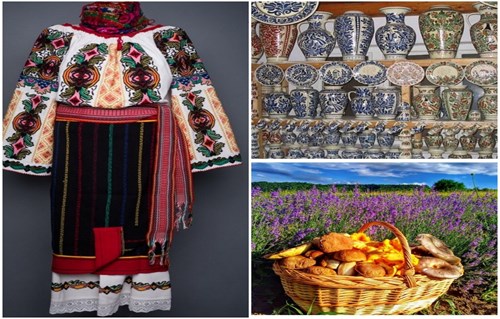
Cozmesti is an authentic rural settlement in the heart of Moldova region, in Romania. The commune is historically attested from ancient times, when groups of people living in the area of the Prut plateau sought sanctuary in higher grounds, away from the fury of the river.
Taking into account that the tendency of people nowadays is to seek out inner peace, pure air, and a connection with the nature in rural places, away from the monotony and noise of the big cities, the village of Cozmesti has a significant tourism potential.
Located just one hour away from Iasi international airport, Cozmesti is a hidden gem, that could offer an unforgettable hospitality experience to national and international tourists. The key factors that make Cozmesti a remarkable example of rural tourism experience refer to its well-known fanfare dating from over hundred years ago, archaeological sites from the Dacian era, recognised historic monuments, sizable grapevine vineyards and oak forests with black truffles.
The fanfare from Cozmesti brought international fame to these places, and its rhythms are passed down from generation to generation. The brass band was founded over hundred years ago and during its long existence it had moments of great success, performing tours in France, Holland, Germany, Belgium, as well as in all cities of the country. Their music lifts you off your feet and their tempo are astonishingly fast. They do a remarkable job of articulating the intricate rhythms and harmonies of Romanian dances, even former president Ceausescu being a great fan of them. (womex.com)
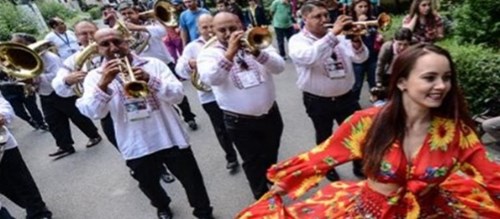
The church "Holy Kings" in Cozmesti has its roots deeply set in the mist of time, being present since the beginning of this places, serving as a lighthouse for the Orthodox Christians. Every Sunday the priest is having a special programme named "Christ shared with children", and they engage together in artistic activities, as well as making pastoral visits to the sick and needy people. A carol concert is held annually on Christmas Day, and gifts are shared between those present. Since 2004, the Church is part of the National historic monuments of Romania. (cozmesti.mmb.ro)

The Dacian fortress of Cozmesti, which is located on top of a hill, continues to fascinate people from all around the country up to these days. The legend says that the fortress hides a magnificent treasure, whose owners might be the Dacians or Turks. The elders recall that while they were in school, they travelled to the citadel and thus who randomly dug in the ground had a chance to discover metal fragments that could have been arrowheads or daggers. They think that the Turks who have hidden a treasure there had sealed a subterranean cellar in the fortress with a lock as large as a kettle. Since all treasure seekers were involved in all kinds of unforeseen events, like getting lost, guided by an unseen force to different paths, and finding themselves several kilometres away, the locals are certain that the treasure is being protected by a dreadful curse.

With a tradition dating back around 2,000 years, the nation is regarded as one of the world's viticultural powers. Cozmesti is well-known for its rich offer of vineyards that can be visited and discovered closely by wine lovers.

The human need to travel and explore new places is at the heart of the tourism phenomena. Today, tourism is one of the most important socioeconomic factors in the world and has a significant impact on both the global economy and social relations on a global scale. As a result, tourism is one of the main sectors recognised as a source of income and draws significant public and private investments.
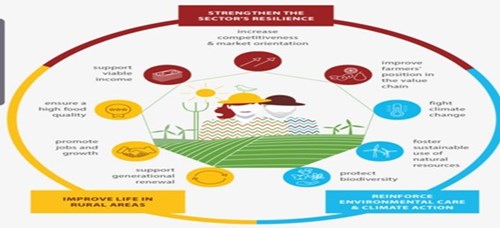
Source: consilium.europa.eu
The most notable aspect of Cozmesti's political environment is referred to the fact that Romania is member of the European Union. However, the country has experienced a significant fiscal deficit for the last twenty years, which means that the nation's spending exceeds its revenue, which has resulted in an increase in the nation's total debt. Currently, the government is funding projects aiming to develop the rural areas infrastructure and create modern living conditions, while preserving their diversity and socio-cultural heritage. The mayor of Cozmesti attracted European funds for the development of national roads and the establishment of a modern hospital in the commune.
The Common Agricultural Policy supports the dynamism and economic viability of rural area through financing and actions that promote rural development, by increasing the economic and environmental sustainability. Cozmesti Hall is helping to increase agricultural and forestry competitiveness, ensure sustainable resource management and climate action, and achieve a balanced territorial development of rural economies, including the creation and preservation of jobs within the commune.
Cozmesti is particularly unique in terms of its sociocultural activities. The community is united; everyone works together to maintain the land, and on Sunday's everyone gathers at the church. On holy days, people meet in the centre to organize a round dance called "hora" that is accompanied by the fanfare. Meeting guests with bread baked in the stove, salt and a glass of wine is one of the village most significant tradition. In this way, the hosts are showing their respect and warmth. One of the Christmas Eve customs that the locals are most proud of is carol singing. Long before the eve, the village's youth are meeting to discuss the carols and create the folk costumes, then on Christmas Eve they will travel a well-establish path to every house, the hosts offering them fruits and nuts as a thank-you.
For Easter, housewives paint the eggs, traditionally using the colour red and bake the cakes, after which they go to the church. In the morning, everyone washes their cheeks with red and white eggs which stands for strength and purity. However, during current times many youths are going abroad for better opportunities, while the elders are holding tight the traditions.
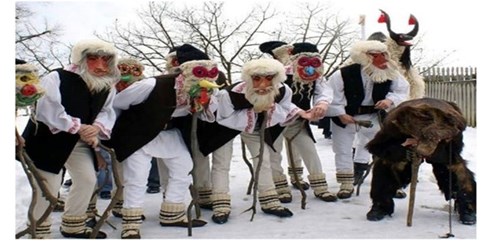
Cozmesti is on par with much of the rest of the country and Europe in terms of technology. There are advanced computers and powerful cellular networks, with free Wi-Fi in the centre. There is an advanced fabric of icons in the village, using a robotic system to help the production of handmade icons for gaining more competitive advantage. Intelligent mobile robotic systems are also used in harvesting operations to improve the working conditions for farmers and complete the job in a time effective manner.

Source: robotnik.eu
Romania is a bureaucratic nation; therefore, investors are meeting a series of legal regulatory hurdles to clear when making an investment or starting a local firm in Cozmesti.
In terms of environmental factors, companies and individuals in the commune need to follow regulation in regard to pollution and use of resources.
Living in rural areas relies on a set of rules that are derived from life experience, traditions, customs, and local culture more than in any other type of social context. Together with the economics and ecology, the unique social and cultural life found in rural areas offers an incomparable human heritage, revealing the actual scope of the village. In order to succeed in meeting the ever-changing demands of the market, the rural tourism product needs continuous development and innovation, especially for those who want rural tourism but with metropolitan comforts.
In this sense, "The Inn" of Cozmesti is brought to life, rebuilt from a hundred-year-old Hall, by a young man who understood its heritage. The inn has forty-four accommodation rooms, two restaurants with local specific, outside dinning terrace, two craft workshops, two wine-cellars, as well as one spa with interior pool, and a heated exterior pool that can be used during winter times for satisfying guests needs and expectations.
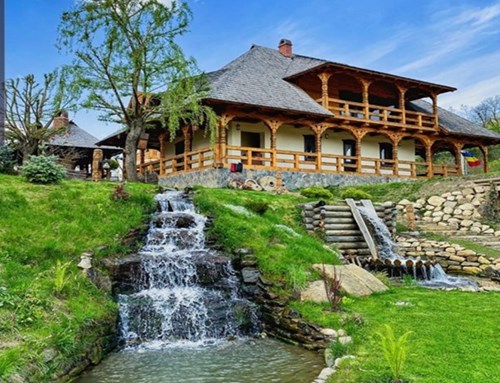
The promotion of traditional Romanian products can have a significant positive impact on the rural economy, whether we are talking about food or rural art. The Inn, as a hospitality project, can help enhance productivity in the region and, as a result the quality of life for the locals. The organisation is creating new jobs opportunities for local people, looking to hire chefs, waiters, housekeepers, or entertainers. In this sense, it is encouraging the diversification of activities to include new, non-agricultural ones. At the same time, it significantly supports cultural value and contributes to educational, social, and professional activities in the region.
The restaurant's menu is carefully created with the finest organic ingredients, from own farm and gardening, preventing, and countering the negative effects produced by industrialized agriculture on the environment. The purpose is to provide the guests an authentic experience, based on recreation and health achieved through the beauty of the landscapes and spring water, clean air, and healthy food.
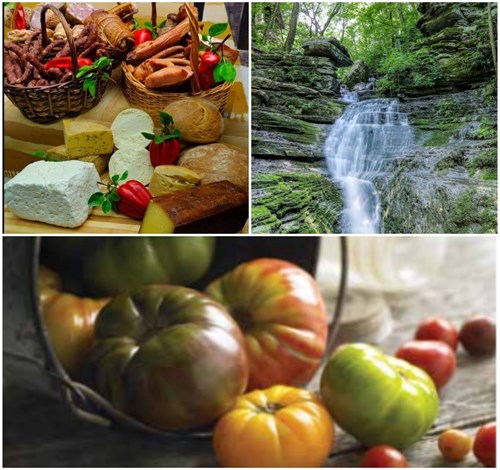
The sustainable development of the village is encouraged by supporting the diversification of rural activities to utilise its maximum potential. Currently, the business environment in rural areas is considerably increasing, which is why community support is needed. This will help to create more jobs, raise the income of rural population, and reduce the disparities between the rural and urban economic environments. Additionally, when more taxes are collected for the national budget as a result of new businesses, the economy will expand significantly. Services associated with tourism are frequently connected to other important economic sectors like transportation, cultural and creative industries, or financial and insurance services. Internationally, the rural tourism development would serve as a great economic input through contracts signed with global tourism agencies.
The pandemic, the accompanying economic crisis and the chaos brought on by demand fluctuations will undoubtedly have a lasting influence on the hotel industry. Innovative responses to these extraordinary circumstances have accelerated current trends in the hospitality sector and forced the industry to long-lasting changes. Therefore, new standards for hospitality businesses have been set by growing customer awareness of everything that is sustainable, meaningful, and good for their health and well-being. (hospitalityinsights.ehl.edu)
The above being said, in order to adapt to changes in customer behaviour, The Inn will focus on implementing the newest trends in hospitality.
One of the most exiting advancements in hospitality technology is virtual reality, which enables prospective guests to experience the inn surroundings from the comfort of their home. This is an important aspect for getting them through the planning stage and into committing to visit. The VR Tour will offer an illustration of the landscape surrounding the inn accompanied by an audio done by the local brass, highlighting the traditional features of the property. Additionally, there will be a detailed description on reception, facilities, dinning places and the rooms together with current availability. The aim is for the viewer to take away both a sense of inner peace and a genuine glimpse of what can expect to enjoy. Another digitalised service refers to the introduction of chatbots, that can answer essential questions in matter of seconds which will help everyone involved and make the process time efficient for both parts.

Source: program-ace.com
Another current trend in hospitality refers to sustainability. Located on high grounds, Cozmesti is well-known for its wind turbines producing regenerable energy. In addition, The Inn installed solar panels and cut its energy consumption by over 40% thanks to its geographical position and year-round access to sunlight. With the purpose to reduce carbon footprint, the property also invested in a heater pump system that uses 70% less electricity and a bio-gas systems that converts food waste and other organic materials into cooking gas. Used water is filtered and purified before being redirected to the farm's animal watering hole.
The organisation is hiring staff locally, helping to the sustainable development of the commune. The guests are involved in nature-based activities, such as forest trips, horse riding, or vineyards and wine tasting experiences. The Inn's restaurants will serve the food in handmade ecological clay dishes, and the natural juices will be accompanied by bio straws produced from natural reeds from Danube Delta.

Nowadays, guests are looking for organic ingredients, which are environmentally safe and rich in nutrients, as well as for personalized services. The Inn is committed to serve only ecological foods, from its own agricultural activities and farming, with awareness to natural biodiversity, conserving the soil, water and climate. Additionally, the organisation's aim is to connect tourists with organic farmers, fostering cultural and educational interchange, and creating a global community conscious of sustainable farming.
The tourists have the opportunity to witness live the process of milking cows fed on natural grass, and try the incomparable taste of raw milk, which is one of the most nutritious foods in the world. According to The Raw Milk Institute, the consumption of raw milk from organically fed cows reduce the risks of allergies, asthma, eczemas and strengthen the immunity system. (rawmilkinstitute.org) Moreover, the guests have the chance to choose and harvest their preferred vegetables from the inn's garden to make a personalized salad. For visitors arriving during the truffle season, The Inn is organising trips in the forest, to provide its guests a memorable experience of observing the search and picking of black truffles that will be served as an accompaniment to their dinner plate.

The Inn is serving organic wines from own production from the vineyards of Cozmesti, where the company owns 65 hectares of vineyard plantations. The wines are matured for six months in oak barrels made in Romania before spending a further eight months in special designed bottles, with wooden label. Most famous varieties of wine are Feteasca Neagra (Black Maiden), a wine of a distinct aromatic complexity and Busuioaca de Bohotin, a wine from the Muscat family, with a subtle scent of basil and discreet aromas of roses and strawberries. Horse-drawn carriages are made available for tourists to visit the vineyards, and the grape variety is equipped with digital labels that can be scanned to offer full information of its history and characteristics.
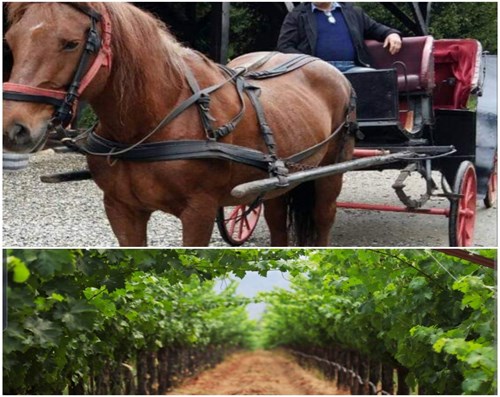
The Romanian village has always kept the popular traditions that represented a genuine ethics code of the Romanians throughout history. Traditions foster the values of goodness, justice, wellbeing, comprehension, nationalism and religion. As a result, the village served as the environment where the culture and old civilization were created, being a national symbol through its uniqueness.
The hospitality of the local people, popular customs, traditional crafts, the gastronomy and local resources are all aspects of Cozmesti's diversity that can be harness at national and international level.
References:
2022 Top Hospitality Industry Trends, 2022. Available at: https://hospitalityinsights.ehl.edu/hospitality-industry-trends?hs_amp=true [Accessed on 25.11.2022]
Bacchus | Inspection & Harvesting robot | Robotnik, 2022. Available at: https://robotnik.eu/projects/bacchus-en/ [Accessed on 16.11.2022]
Beyond Dracula, 2022 Available at: https://www.beyonddracula.com/eternity-born-village-romanian-peasant-connection-heaven-earth/ [Accessed on 14.11.2022]
Fanfara din Cozmesti - Womex, available at: https://www.womex.com/virtual/la_gala_international/fanfara_din_cozmesti [Accessed on 16.11.2022]
Future of the CAP, 2020. Available at: https://www.consilium.europa.eu/pl/inpographics/cap-reform-objectives/ [Accessed on 17.11.2022]
Parohia Cozmesti, 2012. Available at: https://cozmesti.mmb.ro/ [Accessed on 16.11.2022]
Raw Milk Institute, 2019. Available at: https://rawmilkinstitute.org/updates/letter-to-medical-professionals-about-raw-milk [Accessed on 20.11.2022]
VR Hotel: Interactive Virtual Tour Case Study, 2022. Available at: https://program-ace.com/success-stories/vr-hotel/ [Accessed on 25.11.2022]

